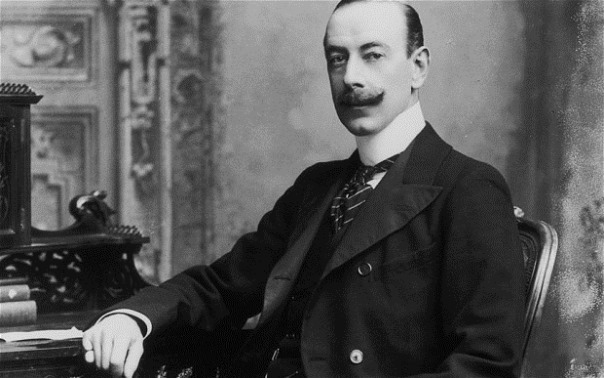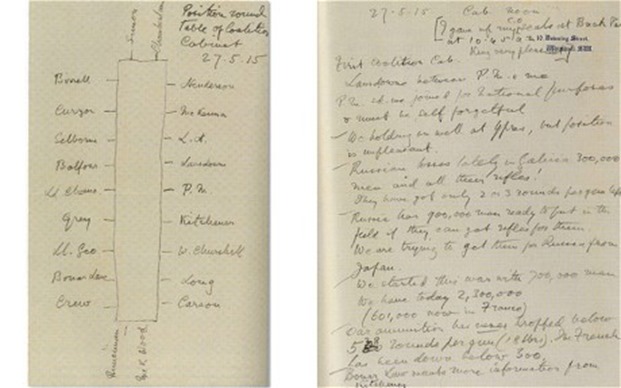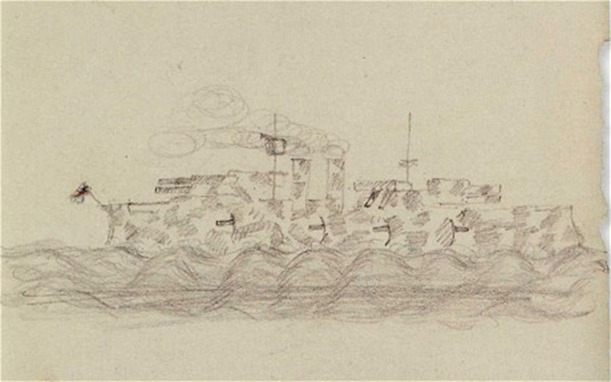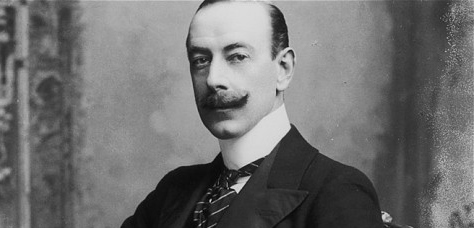Telegraph
June 11, 2014

They are scribbled notes the people of Britain were never supposed to see, expressly forbidden by Herbert Henry Asquith, then prime minister, and Winston Churchill.
But the diaries of Lewis Harcourt, a Cabinet member, are to be published for the first time, nearly 100 years after they were written.
The notes, which Harcourt kept fastidiously during and after Cabinet meetings in contravention of strict unwritten rules, disclose the behind-the-scenes discussions in the build-up to the First World War.
Among tactical negotiations, they reveal the inner workings of a Cabinet under pressure, as well as the snide asides made among rivals.
At one point, an exasperated Asquith slips a note to Harcourt complaining about the verbose Churchill taking up too much time in meetings.
Other entries record the unseen wranglings of the coalition government, spies on British shores, the perceived warmongering of Churchill, tearful German ambassadors and personal clashes around the Cabinet table.
Harcourt even records private conversations with King George V, in which the monarch allegedly claimed the government was out of touch with the people.
The politician also gossips about Asquith, who “never” indulged in a cup of tea.
Harcourt, who served as colonial secretary in 1914-15, made his notes – often verbatim – on the back of Foreign Office telegrams, as well as neat pieces of paper written up after meetings.

The papers, which were filed in initialled cases, were stored by Harcourt’s family after his death in 1922, and have been seen only by a handful of academics.
They were transferred to Oxford University in 2008, where they have been catalogued. They will now go on show in an exhibition at the university and in a book, From Downing Street to the Trenches by Mike Webb.
Issued by the Bodleian Library, the book will use personal letters and first-hand diary extracts of contemporary politicians and their peers to tell the story of how the First World War unfolded.
Harcourt’s notes, which he was expressly forbidden from taking, are believed to have been intended to one day contribute to his memoirs, and give an unexpectedly candid account of life in the pre-war government.
In 1914, he recorded how Asquith had been warned about the activities of Churchill, of whom Harcourt recorded having a “profound distrust”.
By June, he wrote of Churchill’s getting “prematurely into the war stage”, noting: “I think he has gone mad.” In August, Harcourt claimed that the French and German ambassadors were “in tears” at the prospect of being “crushed” by war, while Churchill threatened to resign if Germany was permitted to violate Belgium’s neutrality.
Further Cabinet clashes involved Churchill’s “trying to raise compulsory service” against the prime minister’s wishes, and various members trying to bargain over the ownership of Cyprus and Malta.
By March 2 1915, a frustrated Asquith had passed a handwritten note to Harcourt, reading: “I shall some day keep a Cabinet time table. I roughly estimate that about one-half of the whole is taken up by one person.”

